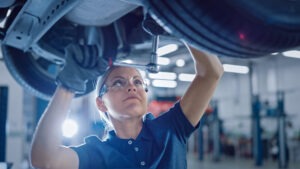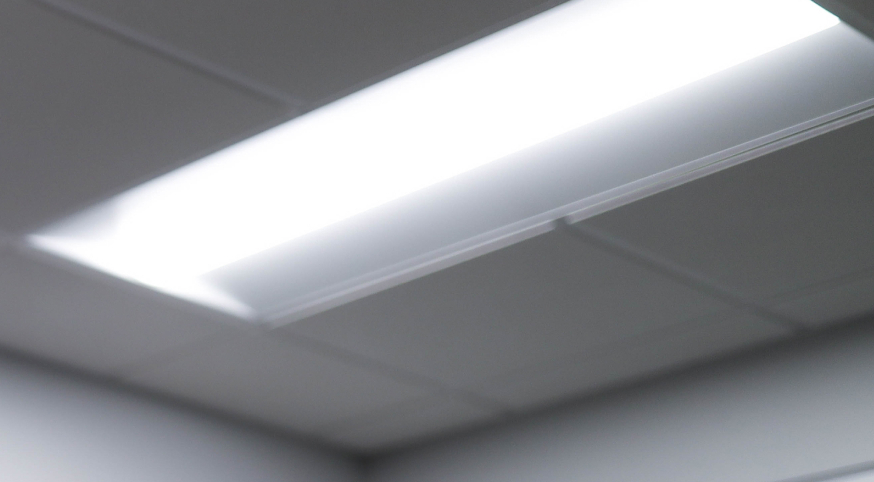
You can sue a car mechanic for negligence, but only if you have evidence of that mechanic’s negligence on hand. Whether you get into an accident due to a faulty part or find yourself unable to drive off a mechanic’s lot, you must bring proof of a mechanic’s deliberate or accidental misconduct if you want to demand damages for your losses.
Initiating an investigation into a mechanic’s misconduct can prove difficult, though, particularly if you’re going up against a well-established auto repair chain. Fortunately, you don’t have to work alone. You can turn to the Indiana car accident attorneys with Vaughan & Vaughan for help initiating and filing your negligence claim.
How Can You Take Action Against a Negligent Car Mechanic?
If you want to sue a negligent car mechanic, you need to file a claim with an Indiana civil judge before your statute of limitations expires. Auto mechanic negligence falls under the broader category of personal injury claims in the Hoosier state. That means you have two years to bring your claim forward, barring any exceptions or unique circumstances.
You can refer to Indiana’s personal injury statute of limitations, Indiana Code section 34-11-2-4, for more information about your relevant deadline.
Your claim must be as comprehensive as possible if you want to take your lawsuit before a judge. This means that you should detail:
- The nature of the negligence that led to your losses
- What evidence you have laying blame for your losses onto an applicable mechanic
- What the total value of your losses is
- What evidence you can use to defend your demand for damages equal to or exceeding the value of your losses
Your Case Will Get
The Attention It Deserves

When Can You Accuse a Mechanic of Negligence?
You can accuse a mechanic of negligence when you believe that said mechanic’s deliberate or accidental oversights resulted in your car’s lack of appropriate care. Should that lack of care result in a dangerous or deadly accident, you may have the right to hold the operator or institution that last worked on your car liable for your post-accident expenses.
Some of the most common forms of mechanical negligence that can impact today’s motorists can include:
- Failure or refusal to complete essential repairs
- Installing incorrect parts in a vehicle
- Damaging a vehicle while conducting repairs
- Performing unnecessary or harmful “repairs”
- Illegally modifying a person’s vehicle with or without their consent
- Failing to identify a vehicular failure
- Leaving dangerous debris in a repaired vehicle
- Allowing untrained, unlicensed, or unqualified individuals to work on a car
You can bring evidence of any of these forms of negligence forward if you want to bring a lawsuit against a mechanic after a vehicular failure or dangerous accident.
What Evidence Can You Use to Prove a Car Mechanic’s Negligence?
If you want to argue that a car mechanic engaged in workplace negligence and later endangered you and your passengers, you need to have the means on hand to defend your claim. This means that you should work with an attorney to gather evidence of negligence before submitting your applicable paperwork to a civil judge.
The evidence you bring forward needs to outline the duty of care that a mechanic owed you and the behaviors that you believe violated that duty. You can use any of the following kinds of evidence, and combinations thereof, to make your case:
- Video footage of workplace misconduct
- Photos of workplace misconduct
- Debris left behind in your car
- Damaged vehicular parts
You can also request third-party opinions regarding the state of your car before and after a mechanic worked on it. Statements from bystanders describing the nature of your automotive failure and its relationship to an accused mechanic can also help make your case. You can discuss which types of evidence are most relevant to your lawsuit with our team.
Can You Divide Accident Liability Between a Mechanic and a Third Party?
You can divide liability for a car accident between an auto mechanic and a third party. If, for example, you lost control of your car due to a mechanical failure but were also hit by a truck driver, both your mechanic and that driver may bear responsibility for your financial well-being.
When it comes time for you to divide fault between applicable parties, you need to refer to the evidence you have on hand. You cannot make claims regarding the division of fault unless you have evidence indicating that more than one party contributed to your accident. Fortunately, Vaughan & Vaughan can help you navigate through this process.
Suing Corporate Mechanics Versus Independent Contractors
If you want to take up a claim against a mechanic, you need to determine whether you’re holding that individual liable for your losses or if the fault falls to a larger corporation.
If you work with a private mechanic, including someone who owns their own shop, you’re likely contending with an independent contractor. Some mechanics’ shops may even hire their repair team on a contract basis. Should a shop or individual categorize themselves as independent contractors, you must sue that individual, not a larger institution.
Chain auto repair shops, comparatively, tend to hire employees, not contractors. If you believe the mechanic who caused your car accident works on an employee’s W2 or contract, you may have the right to hold that party’s employer financially responsible for your accident-based losses.
You don’t have to push for a person’s contract information without backup. When in doubt, turn to Indiana’s car accident lawyers for help determining how a person’s contract may impact your right to hold certain parties liable for accident-causing negligence.


Vaughan & Vaughan Can Help You Build a Car Accident Complaint
If you want to take legal action against a car mechanic, you need to name that mechanic liable for your losses in a car accident claim. The Indiana car accident lawyers with Vaughan & Vaughan can help you investigate your losses, compile them in a complaint, and file that complaint before your statute of limitations expires.
Don’t let your right to accident compensation pass you by. You can schedule a no-obligation evaluation with our attorneys today to learn more about how Indiana personal injury law works in your favor. Contact us online or by calling our office, and we can start fighting for your right to a comprehensive car accident settlement.





